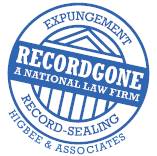Recordgone.com, a division of the Law Firm of Higbee and Associates, recently won an appeal on behalf of a New York client who petitioned to seal his conviction. The New York appellate court reversed the lower court’s order denying defendant’s motion to seal the record of his conviction and sent the case back to the trial court to hold a hearing on the matter. The court’s ruling also will allow more individuals, who have been convicted of a drug-related offense and completed a drug treatment program, to seal the records of the case.

In 2004, the defendant was convicted of criminal possession of a controlled substance in the seventh degree. Criminal Procedure Law §160.58(1) provides that a defendant, who has completed his sentence and successfully completed a judicial diversion program “or another judicially sanctioned drug treatment program of similar duration, requirements and level of supervision,” is eligible to have the conviction sealed. In 2010, the defendant moved, pursuant to CPL §160.58, to seal his 2004 conviction.
Defendant Voluntarily Completed Drug Treatment Programs
In the petition, defendant submitted information to the court that proved he had voluntarily enrolled in several alcohol and drug rehabilitation programs in Virginia, where he resides. The main issue in this case is whether these programs constitute “another judicially sanctioned drug treatment program of similar duration, requirements and level of supervision” as the judicial diversion programs established by CPL article 216.
Defendant also provided a letter from a drug rehabilitation counselor that indicated in July of 2004, defendant admitted himself into an alcohol rehabilitation program, which included 60 group sessions. He successfully completed the program, and all of his alcohol, Breathalyzer, and urine tests were negative. At the time he petitioned the court to seal his record, the defendant had been clean and sober for over five years.
The trial court denied the sealing on the basis that he did not complete “a judicial diversion program” authorized by CPL article 216, “a drug treatment alternative to prison or other judicially sanctioned drug treatment program.” The court reasoned his treatment was voluntary, was not ordered by the court and was not covered in the narrow definitions of CPL § 160.58. However, the lower court did not hold a hearing before making this determination.
What the Courts Must Analyze in These Cases
The appellate court ordered the lower court to schedule a hearing, at which the court must consider any relevant evidence provided by either side and the factors set forth in CPL 160.58(3). Additionally, the court shall determine whether the programs defendant completed constitute “another judicially sanctioned drug treatment program of similar duration, requirements and level of supervision” as a judicially ordered diversion or drug treatment program which would make him eligible to have his record sealed.
The trial court must also examine other factors relevant to the decision to seal the conviction or not. Theses factors, listed in the appellate court’s opinion, include: (1) defendant’s participation in the treatment programs and whether he completed them, (2) whether he failed any drug or alcohol tests or incurred any disciplinary penalties, (3) whether he participated in and completed any aftercare component of the treatment programs, and (4) whether he attended and/or currently attends meetings of organizations such as Alcoholics Anonymous and/or Narcotics Anonymous.
Under the current laws, there are very limited circumstances in which an individual’s criminal record is eligible to be sealed in New York. While drug convictions are eligible to be sealed, the courts in the past have narrowly interpreted the law and denied relief to defendants who completed drug programs that were not specifically ordered by the judge as part of their sentence. This case is a great step for New York, because judges will now consider other drug treatment programs. This will encourage defendants to seek the help they need following their conviction, and it allows prior offenders, who have served their sentence and remained clean and sober, to put the case behind them and move forward.
More information on New York drug record sealing can be found here.



